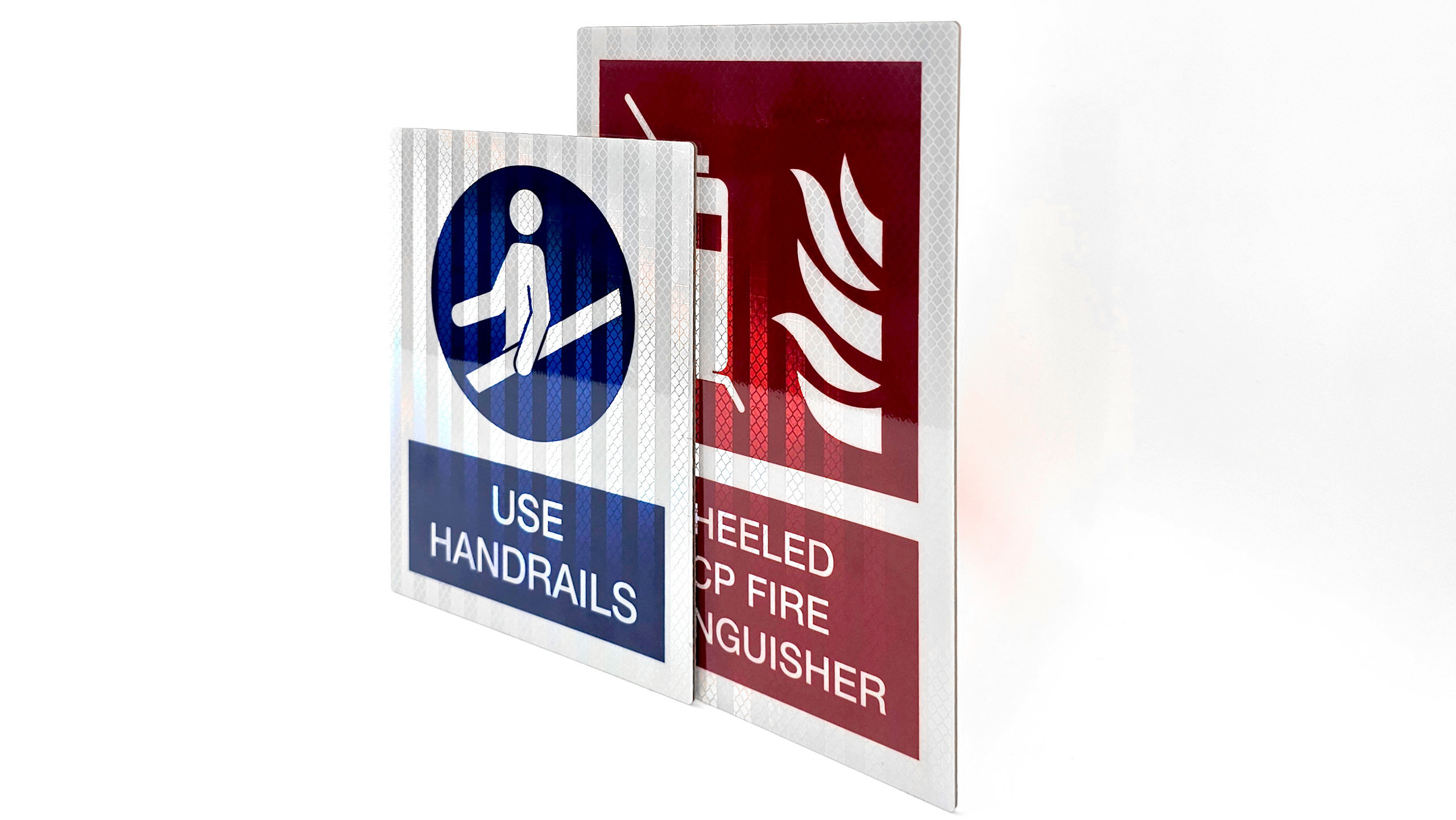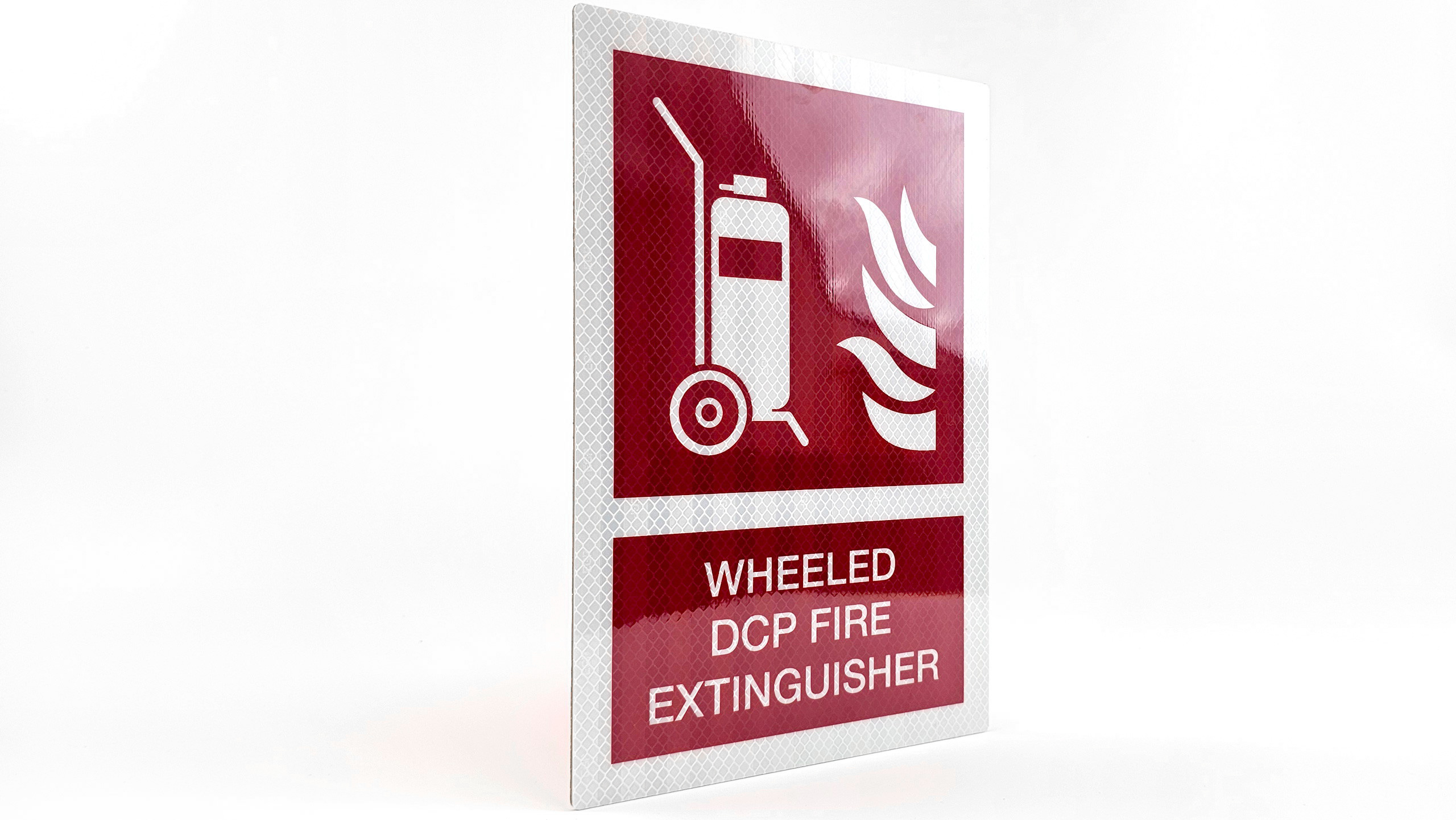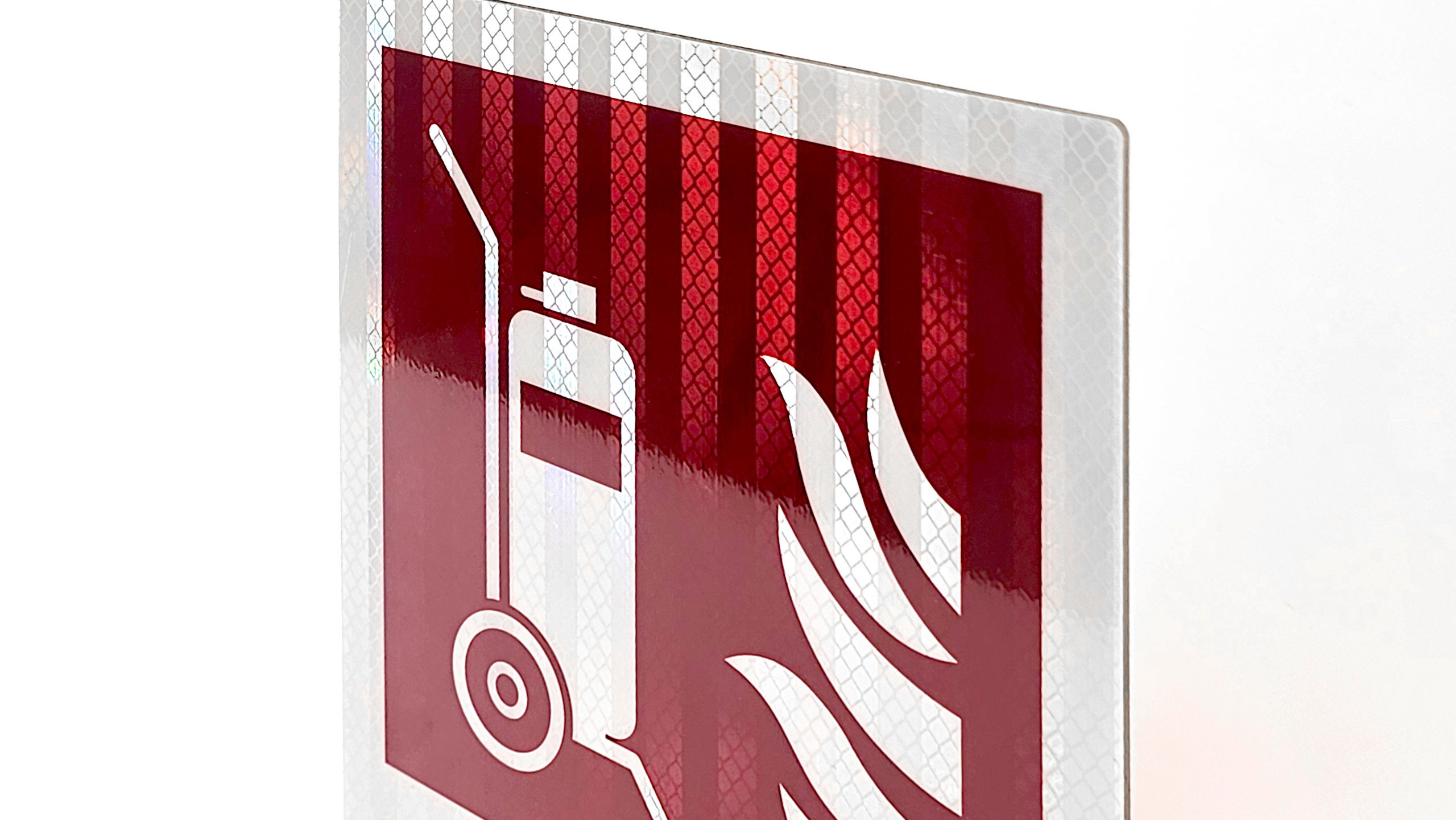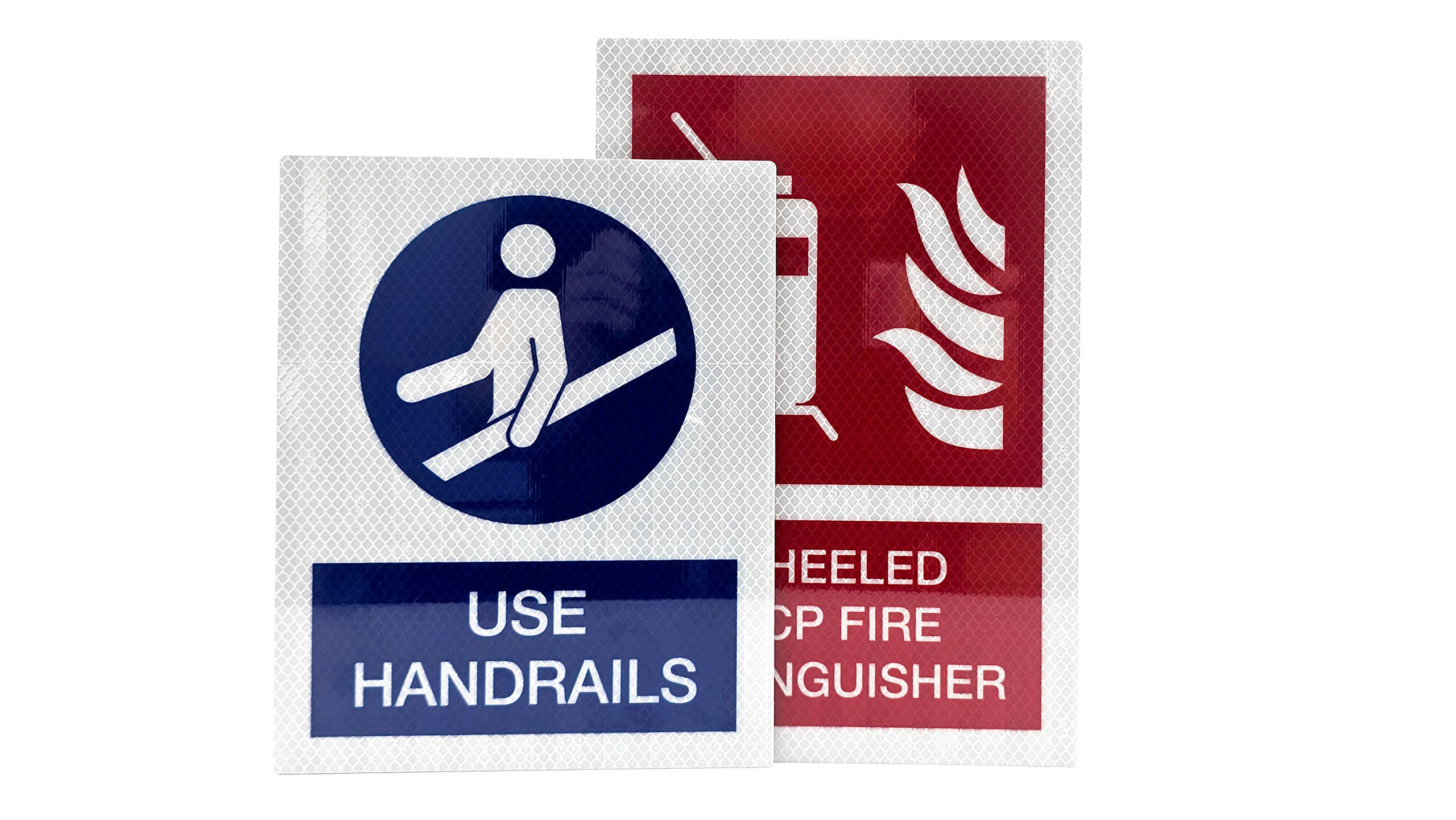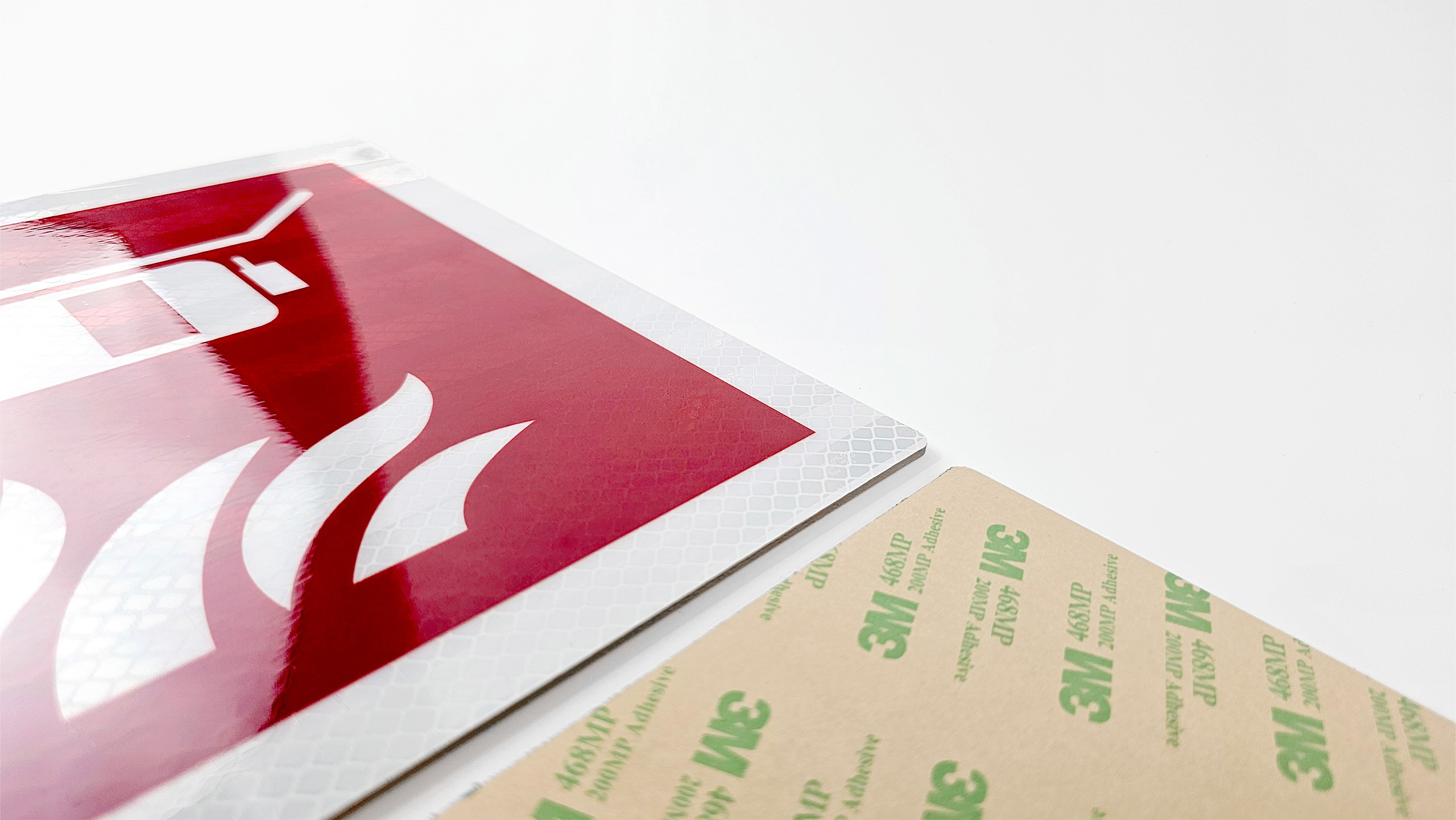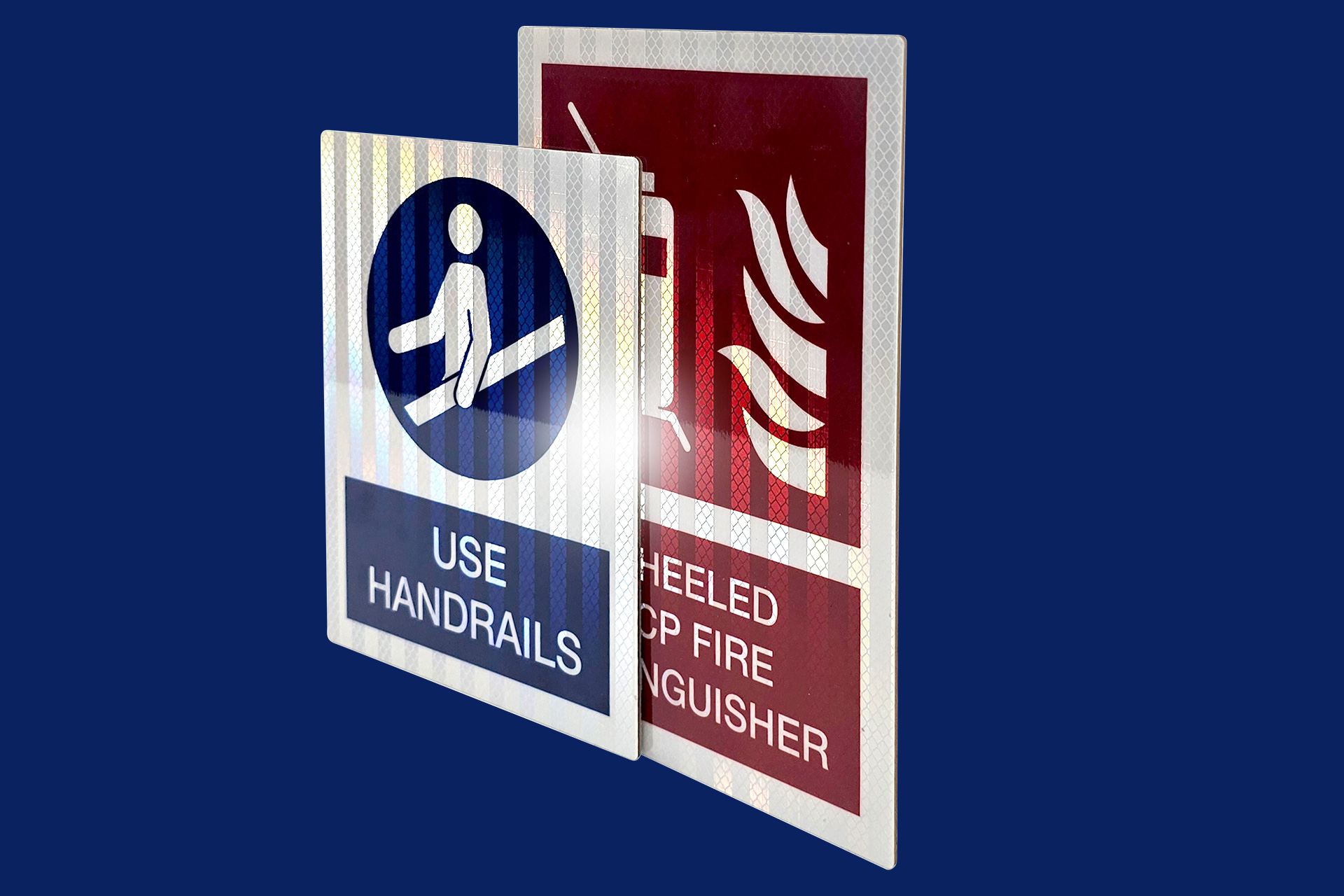
Reflective Safety Signs
Offshore-grade reflective safety signs for high visibility at night or during power loss
Retroreflective
Safety Signs for Offshore Setting
Retroreflective signs serve as safety and information signage designed specifically for challenging offshore environments, such as oil platforms, wind farms and vessels. Their primary function is to enhance visibility and readability in outdoor low-light or emergency conditions by reflecting light back toward its source, typically from a flashlight, headlamp or searchlight.
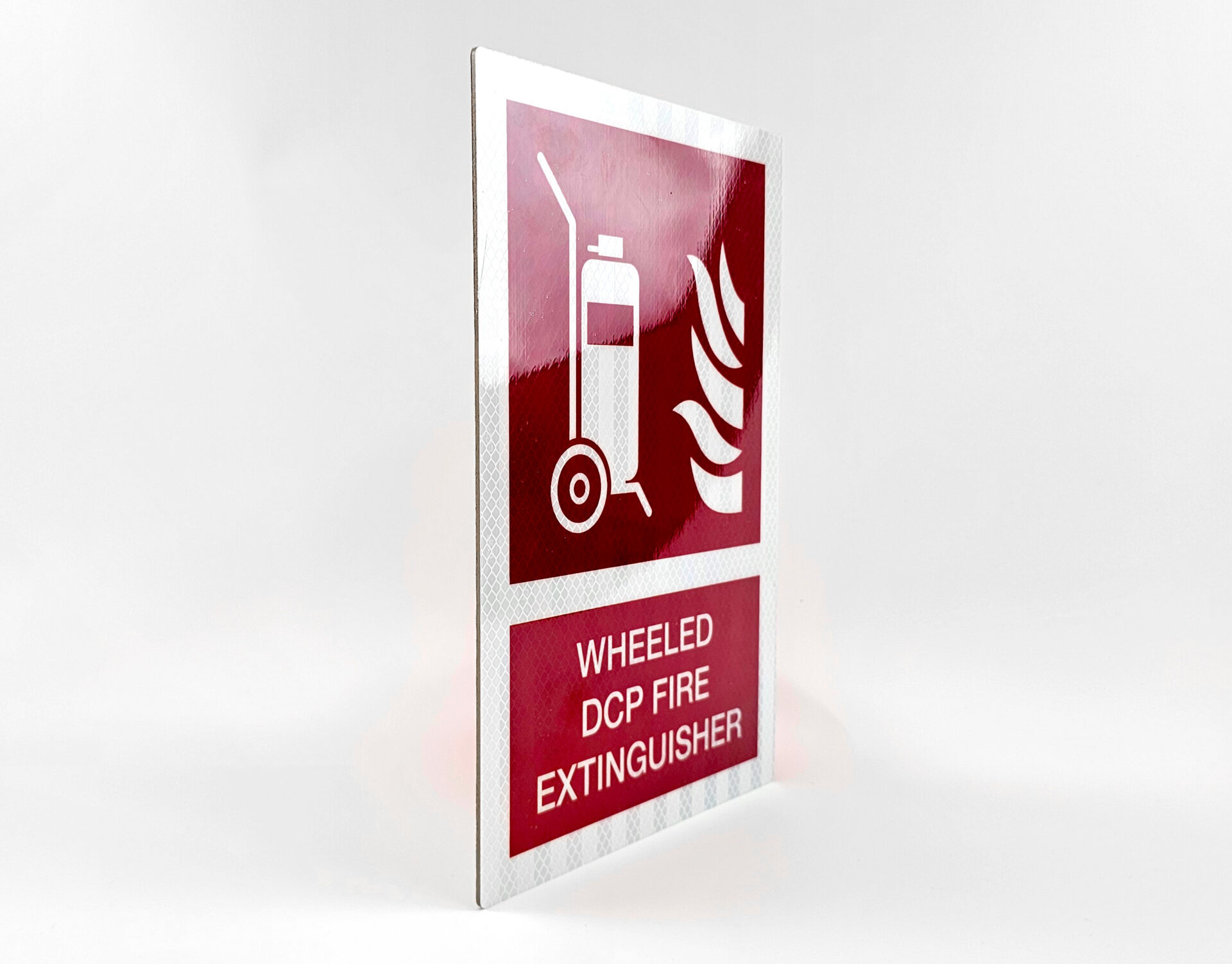
Standards Compliance
A-SPE signs are compliant with applicable IMO and ISO standards for marine safety signage, including:
• IMO A.1116(30) • ISO 24409 • IMO A.760(18) (LSA) • IMO A.952(23) with reference to ISO 17631 (fire control plans)
Maximum Durability
A-SPE reflective safety signs, constructed from a durable rigid backing, layered with premium 3M reflective sheeting and protected by a UV light-blocking laminate, are built for long-lasting performance typical of marine and offshore applications.
Their excellent UV-filtering properties ensure high outdoor resistance to weather conditions and prevent the printed area from fading. Designed with a premium 3M adhesive film, the signs ensure secure and reliable installation on a variety of surfaces.
This multi-layered composition provides exceptional resistance to UV radiation, high humidity, saltwater, mild chemicals and elevated temperatures, up to +94°C.
KEY BENEFITS
3M Engineer
Grade Prismatic Reflective Film
Reflective surfaces use microscopic glass beads or prismatic elements that direct light precisely back to the viewer. The Engineer Grade Prismatic film used in our IMO signage is differentiated from other prismatic or encapsulated lens materials by the distinctive surface pattern and the visible integral ‘EGP’ marking.
Thanks to a specialized printing method, the entire surface of each sign, including the printed area, remains fully retro-reflective, providing consistent performance across the whole sign face.

Technical details
- Materials
- Thickness
- Service temperature
- Minimum application temperature
- Surface preparation
- Mounting method
- UV resistance
- Workable life (indoor)
- Workable life (outdoor)
* depends on the UV exposure and environmental conditions

